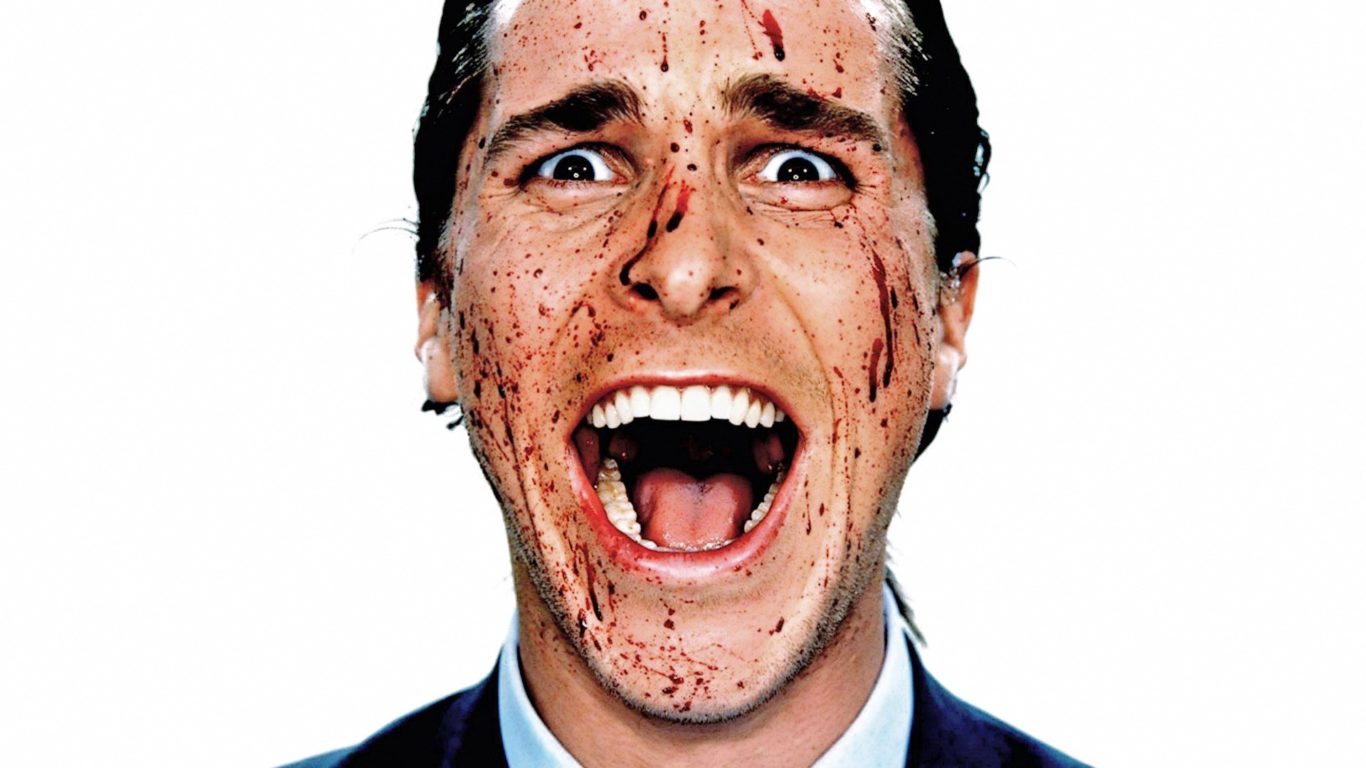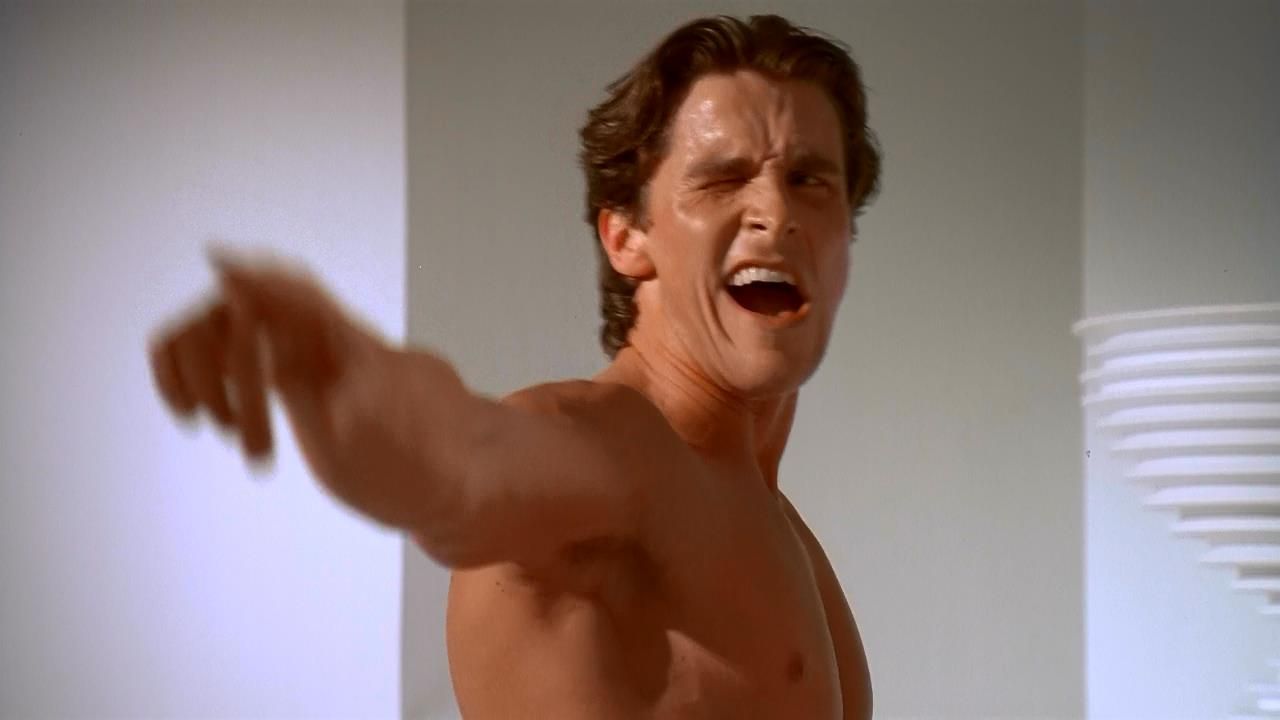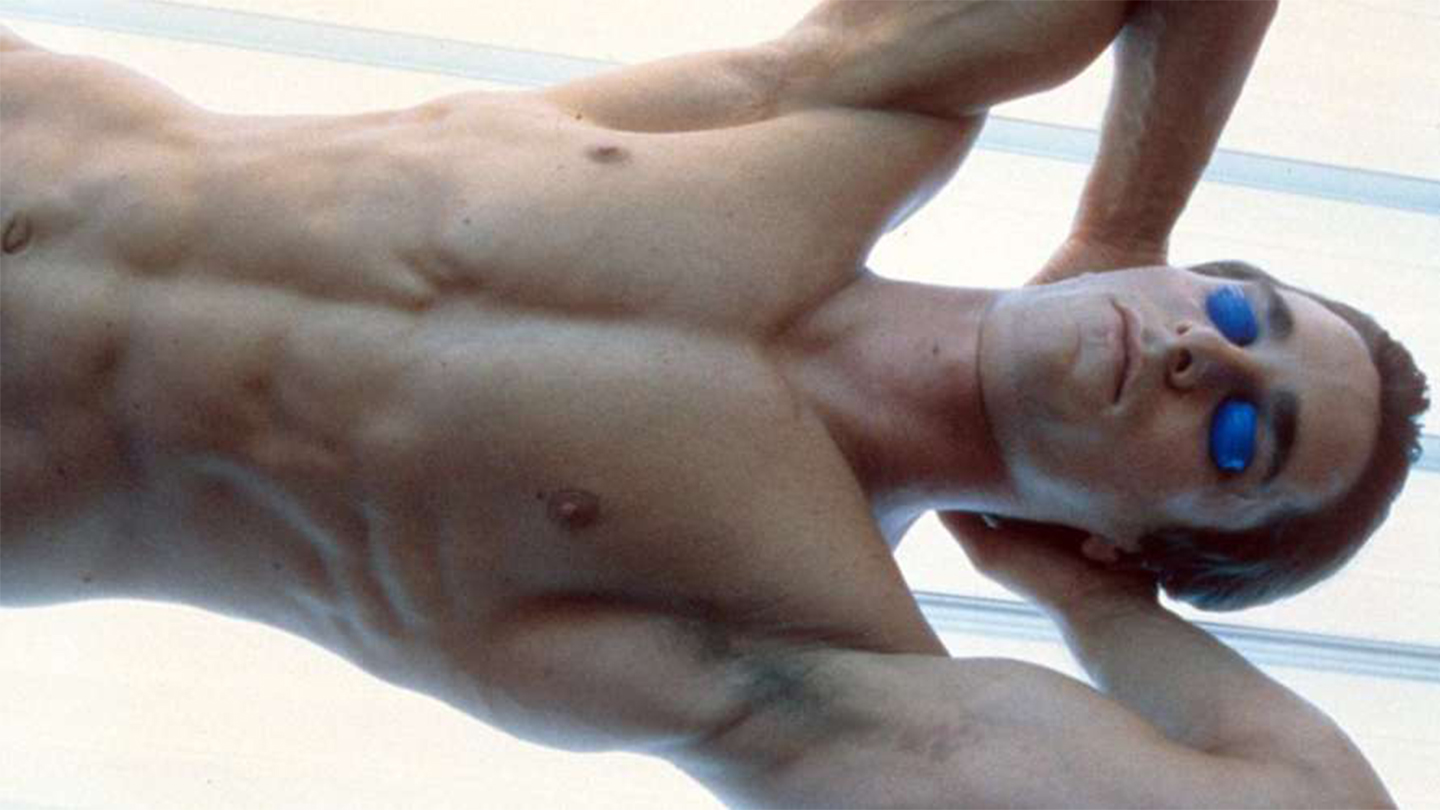We’ve experienced Patrick Bateman in many forms since the publication of Bret Easton Ellis’ extremely controversial 1991 novel American Psycho. From movies to memes to a musical, the axe-wielding Wall Street banker has hacked his way into public consciousness — with no sign of leaving any time soon. Bateman’s most high-profile appearance, Mary Harron’s blood-soaked film adaptation, marks its 20th anniversary this month.
Though American Psycho is now considered a cult classic, opinion was divided when it was first released. While some critics praised Christian Bale’s performance in the lead role, others were uncomfortable with the high levels of violence and misogyny on screen. Audiences were asked a straightforward question: Are yuppies so self-absorbed that they wouldn’t notice a serial killer in the midst? The answer – spoiler alert – is yes: Bateman kills, maims, rapes and pillages to his heart’s content. When not on Wall Street or wandering the streets committing heinous crimes, he’s at home watching extreme pornography and horror movies.
American Psycho is similar to other films that came out around the same time, like Fight Club and American Beauty — here we have a nihilistic protagonist, a vaguely anti-capitalist story, and a director keen to make a statement about the cultural decline of America. Yet the film holds up in ways its contemporaries do not: Tyler Durden and Lester Burnham rebel against a world that young people would now see as paradise; both men are engaged in a self-pitying lament at being doomed to a life of middle-class comfort and working a steady, relatively well-paid job. American Psycho offers a glimpse into the psyche of sociopathic corporate elites who still very much hold the reins of power today.
Bateman, unlike other famed anti-heroes, is also portrayed in an unromantic light; he’s completely pathetic and socially inept. This helped ensure that Harron and co-writer Guinevere Turner’s work would remain widely interpreted as a feminist film, in spite of its depiction of graphic violence against women. “It’s rare that a film looks at this topic of materialism and masculinity and deconstructs it in such a grizzly and humorous way. I think this is where Mary Harron really shines not only in her direction, but screenplay as well. It also adds to this nightmare that Bateman is living,” explains Garrett McDowell, a 21-year-old YouTube film reviewer. “He can’t differentiate between these grizzly fantasies and his life of wealth and vanity.”
The election of Donald Trump in 2016 has also thrown it into new, bizarre relief. In American Psycho, Trump is an almost mythical figure, always found in a restaurant you can’t get a reservation in or the club slightly too exclusive to grant you VIP access. He’s part of the scenery of Patrick Bateman’s life — from the Manhattan skyscrapers featured in the movie to the copy of The Art of the Deal found on his desk in the book. Bateman aspires to wear the most expensive designer clothes, eat the finest cuisine art and live in the most luxurious apartment in the most sought-after part of New York City. He’s constantly looking over his shoulder for Trump, thinking on several occasions that he’s seen him.
Visual communications student Luke Dalton argues that the actual murdering in the film is its least important aspect: “It’s a look at the characters in New York, in these jobs, in these clubs, buying these possessions… It’s a comment on society, and materialism. The main thing I took from the film was that Patrick Bateman is so self-obsessed and has such a huge level of self-importance yet people don’t recognise him or give him the attention he thinks he deserves.”
All social relations in Bateman’s life are warped by capital; the extent to which an individual’s flaws are ignored is directly proportional to the amount of wealth and status they can accrue. Trump’s personal brand — cartoonishly terrible hair, gormless personality, ethically dubious business practices — is the ultimate proof of this. Bateman will continue to get away with his deviant behaviour if he projects the image of a successful person. He could shoot someone on Fifth Avenue and public opinion about him wouldn’t change.
Bateman has a completely toxic fixation upon status. He’s locked in a perpetual dick-measuring contest with his interchangeable colleagues, all of whom boast the same lofty title of ‘Vice President’. In perhaps the most famous scene in American Psycho, the men compare nearly identical white business cards. When Paul Allen (played by Jared Leto) produces a card the other men deem superior, Bateman nearly has a breakdown, and his ego is badly bruised.

The dynamics of this scene have left a fictional Wall Street boardroom and are now playing out in the White House. Trump has boasted in press conferences during the coronavirus pandemic in terms of how much ratings they have generated or how many likes they’ve received on Facebook. He is jealous of how much Kim Jong Un is lauded by the terrorized citizens of North Korea, and shredded international agreements because they were negotiated by his predecessor. American politics have arrived at a terminus in which people now amount to less than pawns, but objects he can use to assess his sense of self-worth relative to other political figures. This is the Trumpian approach to politics — when Rome is burning, he’s trying to get a reservation at Dorsia.
It’s no surprise that both men have resonated with some of the cruelest parts of the internet. An image of Bale during the scene in which Bateman murders Allen following a monologue about Huey Lewis and the News was known to 4Chan as the ‘dubs guy’ in the mid-2000s, posted by users making a game of predicting double numbers in threads. Like Tyler Durden, Bateman appeals to disenfranchised, alienated trolls who want to feel that beneath their socially inept exterior lies a dormant Chad. This is the vicarious thrill also offered by Trump.

The Batemanisation of American politics has turned out to be as predictable as it is horrifying. Trump has a penchant for adding other Bateman-types to his team, most famously Anthony ‘the Mooch’ Scaramucci, a man so rooted in the culture satirized in American Psycho that Twitter thought the 80s guy from Futurama had become the Director of Communications for the US government. Ivanka Trump is on record saying that Patrick Bateman could be her ‘ideal man’, while Christian Bale believes he would run for President of the United States were he a real person and around in 2020. To support Donald Trump in 2020 is to look at American Psycho and think ‘Patrick Bateman? Great guy.’
Bateman can be understood as representing the unarticulated impulses, longings and desires of American capitalism, as if the id of the United States came to life and put on a designer suit. This has made him more relevant as capitalism continues to grind forward, and elites gain even more concentrated, unaccountable power. What American Psycho didn’t anticipate was that he would end up with the nuclear codes.
